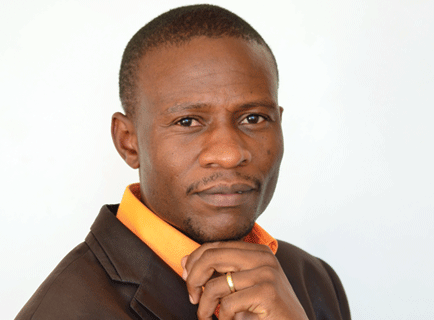
Great leadership is hinged on a number of factors and some of them have been articulated in this column before.
One model that seems to have been famous particularly with Africa is the Young African Leaders Initiative (YALI), of the Mandel Washington Fellowship, which I think must be increased as it has borne more leaders.
Zimbabwe is stuck between situations, the plights or problems of the past and the faith promise that all things are possible to them that believe.
In all that, it’s up to us as nation to progress, retrogress, or plateau. This even applies to companies or any other institute.
 ]
]
There are things we can learn from YALI and as Africa adopt to suit our relevant needs.
John C Maxwell, in his book Becoming a Person of Influence, articulates four experts that can be adopted and be applied to our country.
These are: Modelling, mentoring, motivating and multiplying.
- Chamisa under fire over US$120K donation
- Mavhunga puts DeMbare into Chibuku quarterfinals
- Pension funds bet on Cabora Bassa oilfields
- Councils defy govt fire tender directive
Keep Reading
Modelling
When I say “leader”, what images come to your mind about African leadership? Is it the corrupt stereotypes that have been attached to African leaders? Their power? The campaigns we see when people need to get into office?
There should be a picture that jumps out of your mind instantly! The leader should model; show the best character and exude the traits that have a positive impact on individuals.
Modelling is about showing others — leaders or aspiring leaders alike — the best positive actions that they can emulate to the benefit of our immediate society.
What do you need to model as a leader? These traits include integrity, honesty, transparency, humility, servant hood and dual communication.
Mentor
It’s high time we erected mentorship structures that will groom and grow transformational and trans-generational leaders.
One of the causes that must be a core subject in our curriculum is basic leadership. Most of our tertiary institutes and academic centres alike need to teach leadership.
The current leadership has an obligation to grow the next generation of leaders. A good example is that of Jesus Christ. He trained his disciples for three and a half years and up to now, his principles are still in use.
Six lessons we derive from Jesus’ leadership is that he was committed to them. He believed in them despite their shortcomings.
He was accessible to them. Jesus gave them opportunities as he sent them on a commission. He dealt with them without attaching [detached to] their past to the current life.
He modelled the leadership that they where to show even when he had gone to be in heaven.
In talking mentorship, Maxwell says: “Mentors impact eternity because there is no telling where their influence will stop”.
Dr John M Tibane (2014, pg 55) in the book Enlighted Leadership points the power of leaders that influence. He says influencers:
“They make great people . . .
The are true CEOs: Catalysts Empowering Others.
They are full of passion. They are enthusiastic even in trying times.
They look out for the best in every person
They are motivators, sources of inspiration, and they are creators of hope.
They use their power to empower others to change their own behavior.
They create non-hostile environment that conducive for performance and excellence.
They believe in people they succeed.
They see people not as they are but as they can be”
Motivate
People need motivation. When times are hard, we need people f ull of hope. Vicissitudes are inevitable, but there should someone saying “Yes We Can”.
As a leader motivate people to see greatness in themselves. As Robert Green (2012; p12) wrote in his book Mastery that, “. . . every one of us is unique; our exact generic makeup has never happened before and will never be repeated”.
Motivation takes encouragement, engagement and empowering others with resources and expertise.
Multiply
Maxwell points out that by growing leaders we increase results. In our economies, progress is thwarted because we have leaders that are threatened by upcoming leaders.
As a result they try by all means to discourage, and stop others through frustration.
Modify
The last addition I would make to the four pillars is that leaders should be able to modify. Leaders are agents of change.
Systems can’t remain the same and as a result we as leaders should see change before it comes (see previous article called Disruptive leadership).
Our country needs leadership with foresight. More leaders must be trained if the future of our country is to be secured. Walter Lippmann once said: “The final test of a leader is that he leaves behind in others the conviction and the will to carry on.”
Jonah Nyoni is an author, success coach, leadership trainer and public relations consultant. Tel: 0772 581 918. Email: [email protected] Web: www.successlife.co.zw










